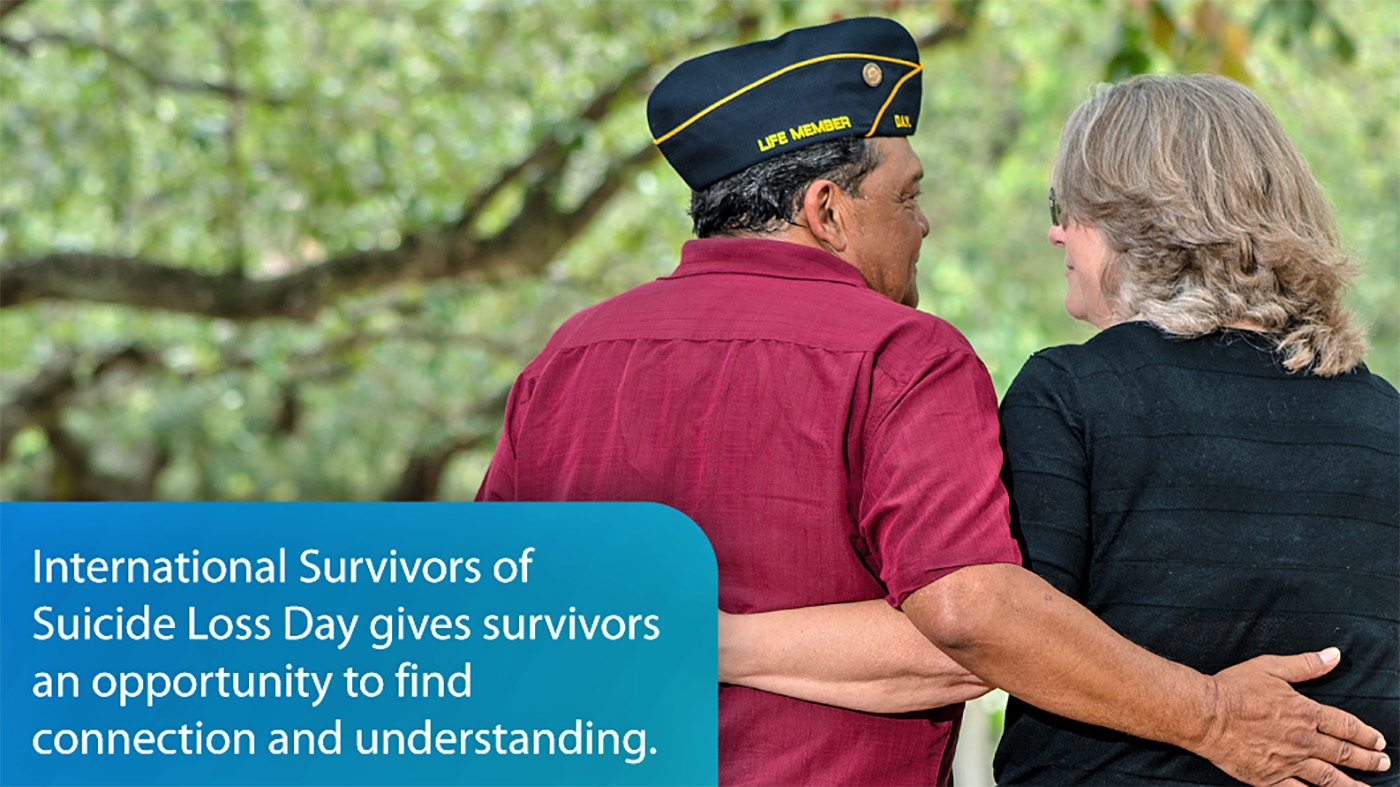If you’ve seen any of our suicide prevention articles or social media posts, you probably know we talk about the signs of crisis a lot.
These “signs of crisis” are signs that a Veteran is struggling and may be heading toward a crisis or having thoughts of suicide. They can include appearing sad or depressed most of the time, neglecting personal appearance or engaging in impulsive, risky activities.
While the above examples are more obvious, some signs of crisis are internal, invisible and intangible: A usually sociable person staying home when friends are getting together, giving away prized possessions, securing long-term care for their pets, someone starting to miss doctor’s appointments or no response to phone calls, emails or texts.
This is especially true about Veterans since we’ve been trained to downplay our burdens and feelings of discomfort to put the mission first. After leaving the military, this training just doesn’t disappear. This can lead Veterans to try to bury their challenges. But it doesn’t need to be this way.
Making sure you understand the range of what a crisis may look like can help you find support if you need it and also prevent suicide.
Internal, invisible and intangible
Suicide is complex, and there’s no single cause. When trying to understand crises, it’s important to recognize the underlying factors that lead a person there and then to realize it doesn’t have to be one thing behind a crisis. It can be many things coming together, all at once or over a period of time.
Signs and factors can be invisible, internal and intangible.
- Job loss: Losing employment can cause you to feel a lack of purpose.
- Chronic pain: When you don’t think you can feel better, you may lose hope.
- Insomnia: Lack of sleep can interfere with your job and family responsibilities.
- Financial or relationship issues: Both can cause intense stress in your daily life.
- The transition from military to civilian life: This can be disorienting, leading to feelings of isolation and loss of identity.
- Hidden wounds, including posttraumatic stress disorder and survivor’s guilt: These can potentially lead to depression, anxiety or thoughts of suicide.
When you carry the heavy weight of these challenges without support, you can be at risk of experiencing a crisis.
Responding to a crisis
So, what should you do if you think you or a fellow Veteran may be headed toward a crisis? Take action. We offer many resources that can help, and you don’t have to be enrolled in VA benefits or health care to use them.
If you feel like you may be in crisis, contact the Veterans Crisis Line. Dial 988 then Press 1, chat at VeteransCrisisLine.net/Chat or text 838255. Caring, qualified responders are ready to listen and help 24/7. They can help you make a plan to stay safe.
If you think a crisis might happen but you’re not in immediate danger, take a look at our suicide prevention website. You can also visit VeteransCrisisLine.net to learn more about crisis and how to find local resources.
These resources can also help you educate yourself on what a crisis might look like and how to find support:
- VA Mental Health: VA’s repository of mental health resources, information and data materials.
- Make the Connection: More than 600 Veterans and family members from across the country have shared their stories of strength and recovery. It only takes a few seconds to find a story just for you.
- Don’t wait. Reach out.: Get support designed specifically for you. Family members or friends can find resources for the Veterans in your life.
- National Resource Directory: The National Resource Directory connects wounded warriors, Veterans, service members, their families and caregivers to national, state, and local services and resources.
- Substance Abuse and Mental Health Services Administration Behavioral Health Treatment Services: This tool, which is confidential and anonymous, allows people to search by ZIP code for local treatment facilities that focus on substance use/addiction and/or mental health issues.
- Mental Health America: Learn how mental health is a critical part of overall wellness, and find out about prevention services, early identification and intervention, and integrated care, services and support.
There is hope
Your story doesn’t have to end with a crisis. Recognizing the signs and unseen factors that could lead to a crisis is crucial to figuring out when you or someone you care about may need help.
No matter what you’re experiencing or the challenges you’re facing, the Veterans Crisis Line is available for all Veterans. If you or a Veteran you care about need immediate crisis support, Dial 988 then Press 1, chat at VeteransCrisisLine.net/Chat, or text 838255.
Topics in this story
Link Disclaimer
This page includes links to other websites outside our control and jurisdiction. VA is not responsible for the privacy practices or the content of non-VA Web sites. We encourage you to review the privacy policy or terms and conditions of those sites to fully understand what information is collected and how it is used.
More Stories
For the Great American Smokeout, explore VA resources and learn why every attempt to stop smoking is a step toward success.
If you’ve lost a loved one to suicide, resources and support are available to help you cope during your grieving and healing.
Army Veteran Denis Velez donated a painting of his VA hospital as a way of giving back for his treatment there.







In my local VA hospital the mental health and medical departments do not work together to help the veterans. I have diabetes and thyroid issues. I need both of my shoulders operated on. I have no energy at all. I have gained a ton of weight. I get exhausted just walking up six steps in my house. I am enrolled in a behavioral therapy program for suicide prevention. When I talk to either of my providers they ignore the other side of my problems. My last mental health psychiatrist told me she would rather work with interns than me and I have not been given another one. Why shouldn’t I feel hopeless and unworthy?